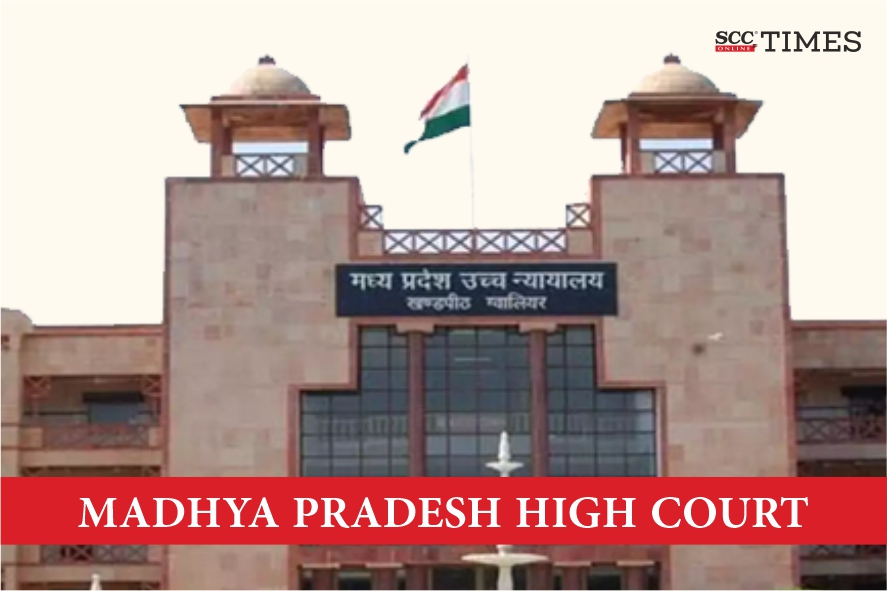Madhya Pradesh High Court: In a petition filed under Article 227 of the Constitution of India against the trial court’s order allowing defendants-respondents application and directing the petitioner to pay court fees on ₹11,05,000/- despite the suit being framed only for declaration and injunction, a single-judge bench of Milind Ramesh Phadke, J., upheld the trial court’s order dated as it did not suffer from material irregularity or illegality and held that valuation of court fee must be based on real relief sought and not on mere drafting.
In the instant matter, the petitioner-plaintiff filed a civil suit seeking declaration and permanent injunction against the respondents. The plaintiff was in possession of a shop near the State Bank of Indore which was let out to him by defendant 1 under a rental agreement dated 06-12-1997. Subsequently, an agreement to sell was executed between the parties for a sale consideration of ₹11,05,000/-. The plaintiff paid ₹8,55,000/- immediately, with ₹2,50,000/- to be paid upon mutation of the property in the seller’s name and execution of sale deed.
Due to an ongoing dispute among the defendants regarding ownership, the sale deed could not be executed. The matter was subject of a civil suit, resolved via compromise wherein the disputed shop fell to the share of defendant 1. However, the mutation was not done because as per Bhoop Singh v. Ram Singh Major, (1995) 5 SCC 709, the compromise decree cannot take effect unless it is registered.
The plaintiff, fearing alienation of the property by the defendants, filed a suit for declaration and injunction, without seeking specific performance. In response, the defendants moved an application under Order 7 Rule 11 CPC seeking direction to pay court fees on the full consideration amount of ₹11,05,000/- stated in the agreement. The trial court allowed the defendants’ application. Aggrieved by the same, the plaintiff approached this Court under challenging the same.
The petitioner contended that the suit was not for enforcement of the agreement to sell, but only for a declaratory relief and injunction against alienation. It was contended that as the plaintiff had no enforceable right to seek specific performance due to lack of title in the defendant, the suit was confined to preventing unlawful dispossession.
However, the respondents argued that the court must look at the substance of the plaint, not merely the wording or form. It was contended that the relief sought by petitioner, when read in entirety, relates to protection of possession based on an agreement involving consideration, thereby invoking monetary value.
The Court noted that the plaintiff’s prayer for declaratory relief is based on an agreement to sell, although not titled as a suit for specific performance, it carried “real money value” and directly linked to the consideration amount of ₹11,05,000/-. The Court relied on Subhash Chand Jain v. Chairman, M.P. Electricity Board, 2000 SCC OnLine MP 329, where it is held that “mere astuteness in drafting the plaint would not glaze the jurisdiction of court for looking at the substance of the relief asked for.”
The Court asserted that the plaintiff cannot evade proper court fee by framing the relief cleverly. The Court stated that the valuation and payment of court fee must reflect the “actual monetary interest involved.” The Court cited Section 7(iv)(c) of the Court Fees Act, and reiterated that where a declaratory decree is sought with consequential relief, the valuation must be on the consideration stated.
The Court upheld the reasoning of the trial court and held that “allegations in the plaint including the substantive relief claimed must be the basis for settling the court-fee payable by the plaintiff.” On not finding any illegality or material irregularity in the trial court’s order dated 27-09-2023, the Court refused to interfere with the impugned order and dismissed the petition.
[Ramcharan Goyal v. Kamlarani Verma, 2025 SCC OnLine MP 3733, Decided on 02-05-2025]
Advocates who appeared in this case :
Shri Jitendra Kumar Jain, Counsel for the Petitioner;
Shri Anchit Jain, Counsel for the Respondent No. 1 to 3.




